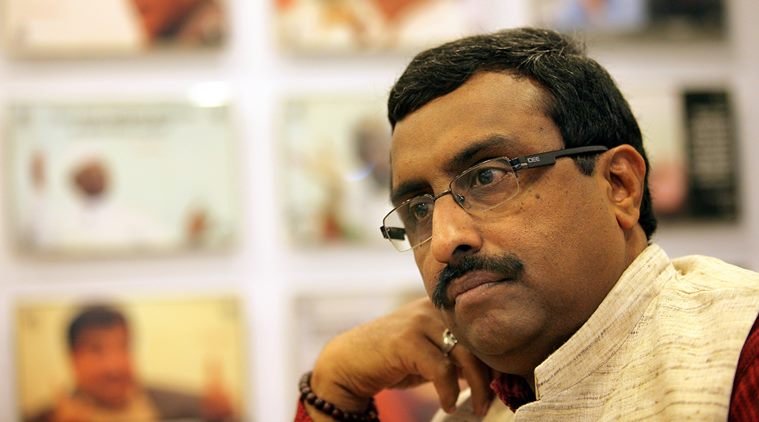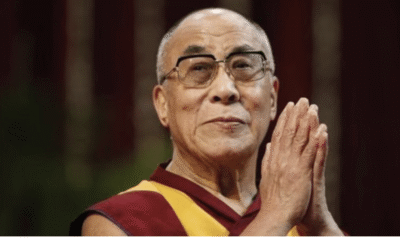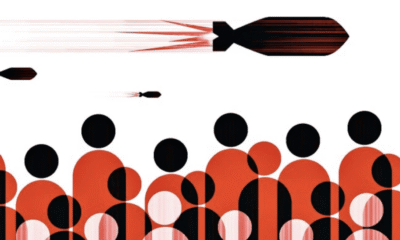
|
Getting your Trinity Audio player ready...
|
“Ekah Shabdah Samyagjnatah Suprayuktah Loke Swarge cha Kamdhuk Bhavati” — one word used at the right time and right context will come in handy in this life and beyond.
This Patanjali sutra aptly applies to the controversy over my views on Akhand Bharat. Something that was stated and restated several times before by several people in the Parivar became an issue only because it came at a time when Indo-Pak ties were in for a path-breaking initiative by Prime Minister Narendra Modi.
I did an interview for Al Jazeera on December 7. A question was put to me about the Akhand Bharat map in the Nagpur headquarters of the RSS. Like on many other occasions, I answered that the RSS had held the view that one day there would be a reunion of all the three parts through popular will and consent. I also made it clear twice that it wouldn’t be through armies or aggression but only through popular goodwill. All that it meant was that it would be a people’s reunion at the cultural and societal level.
Coincidentally, the airing of the interview happened on the very day PM Modi had made an important visit to Lahore to greet Nawaz Sharif and his family. In a tweet I said the following about that visit: “PM Modiji’s sudden stopover at Lahore to greet Pak PM Nawaz Sharif is a much needed departure from protocol-driven politics between the two countries. Like leaders of EU, Asean and even countries in our neighbourhood leaders of India and Pakistan too needed to inject informality in their relations. What better day than the birthday of Atalji for this path-breaking departure.”
I feel sad that my interview was used to diminish the importance of the PM’s path-breaking gesture. We in politics need to look at the immediate — at the most, the next three, four, or five years. Some of us who have imbibed the generational vision of the RSS tend to get trapped in political incorrectness.
Let me reiterate that the Akhand Bharat doctrine is a cultural and people-centric idea. I was not even remotely suggesting that we should redraw the boundaries of our countries. But I do notice great eagerness and urge among the people in all the three countries for greater engagement and interaction. In fact, more than me, it is the seculars and mombattiwallas who have been highlighting this urge by talking about open borders and organising candle-light demonstrations at the Wagah border.
The Partition of 1947 has created a political divide. Who was responsible for it, is a historical debate. In his book, Guilty Men of India’s Partition, Lohia held the three main players — the British, Congress and Muslim League — responsible for it. Later historians have argued about others too.
Speaking about the acceptance of Partition by the Congress, Nehru told Leonard Mosley in 1960: “The truth is that we were tired men and we were getting on in years too. Few of us could stand the prospect of going to prison again and if we had stood out for a united India as we wished it, prison obviously awaited us. We saw the fires burning in the Punjab and heard every day of the killings. The plan for Partition offered a way out and we took it”.
However, was Partition also a divide of the people? In the heat of it, probably a large number of people on both sides got emotionally identified with the new political identity. That political identity will continue to remain. But there is another broader identity of a society that has lived on for millennia as one. Eminent historian Ayesha Jalal, in her book on Manto and Partition, eloquently highlights this dilemma by invoking the idea of a “cultural nation”. “… the extent to which the contours of the cultural nation, creatively and broadly construed, do not map neatly onto the limited boundaries of the political nation”.
In fact, Saadat Hasan Manto, one of the best storytellers of the 20th century, was among those on the Pakistan side who had never reconciled with the idea of the people splitting. One of his Partition stories that Jalal refers to was “Toba Tek Singh” in which the non-Muslim patients of a mental asylum in Lahore agitatedly await relocation to India because of their religious affiliation. “Portraying the inmates to be of sounder mind than those making the decisions for their removal, Manto deftly questioned the wisdom of Partition and the sheer madness it had let loose”, comments Jalal.
That being the case, can we come together as people? Can we cherish the historical, civilisational reality that we had been one people with a shared history for millennia? When I said “through popular goodwill and consent”, this is what I meant.
When Jesus was made to stand before Pontius Pilate for trial, he asked the accusers to define their words first so that there is no confusion in the arguments. That is probably the case with Akhand Bharat too.
In the early ’60s, socialist and Jana Sangh leaders, Ram Manohar Lohia and Deendayal Upadhyaya, came closer to each other. Dr Lohia told Deendayalji that the Jana Sangh’s and RSS’s belief in the concept of “Akhand Bharat” put Muslims in Pakistan at unease and posed a hurdle in the progress of Indo-Pak relations. Lohia said: “Many Pakistanis believe that if the Jana Sangh came to power in New Delhi, it would forcibly reunify Pakistan with India.” Deendayalji replied: “We have no such intentions. And we are willing to put to rest Pakistani people’s concerns on this score.” Out of those interactions between the two was born the idea of an India Pakistan Federation.
As pointed out by BJP spokespersons, Atalji, during his historic bus yatra in 1999, made it categorically clear that India and Pakistan are two sovereign nations.
I and many like me strongly hold the view that the coming together of India, Pakistan and Bangladesh as people, on the basis of mutual goodwill and shared common historical ties, is a very important step to overcome our strained political relations.
I am anguished that my essentially ideological position has been misconstrued to be the political programme of my party or the government of the day.



